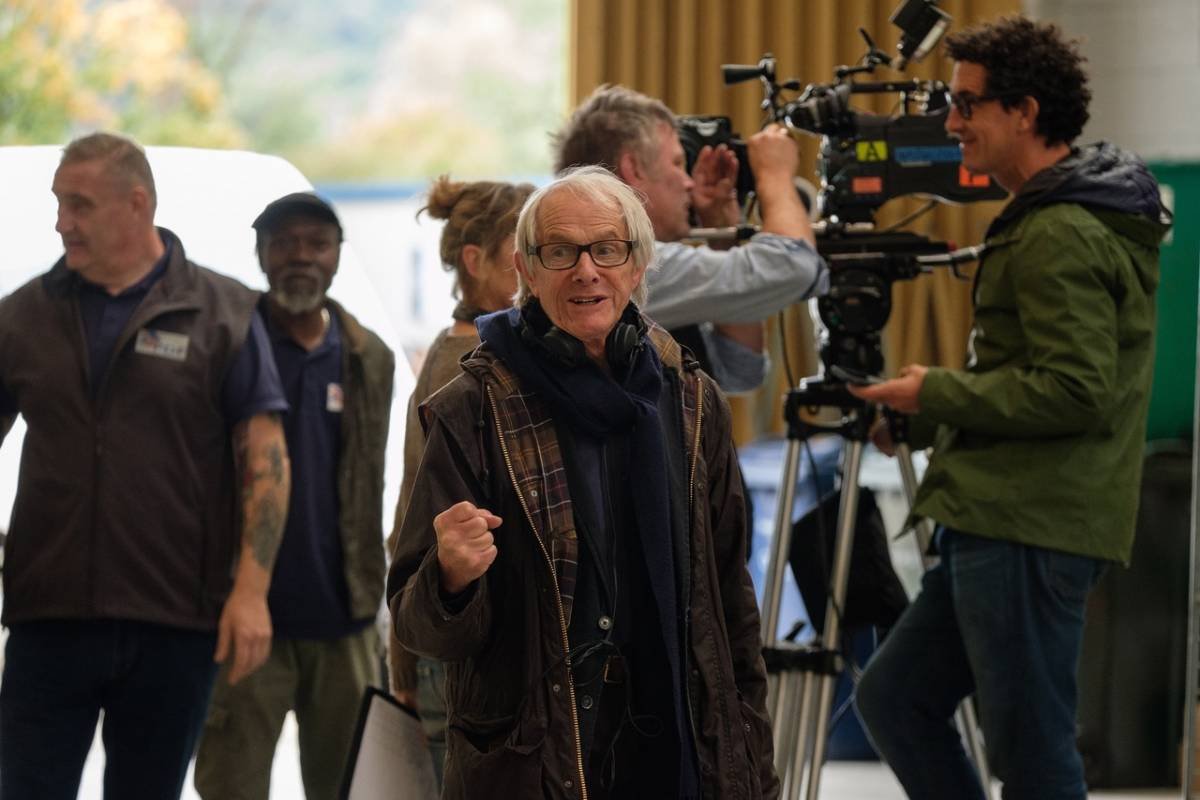In 2013 Ken Loach made The Spirit of ’45, a rousing documentary about the welfare state built by Britain’s postwar Labour government. Asked when conditions for the working class were at their most promising, the 83-year-old filmmaker inevitably points back to that time.
“Obviously, there were elements that weren’t good—there was still rationing—but the sense of collective endeavour and support for each other and optimism was very strong,” he says, reached by the Georgia Straight in London. “I was a child, but people were building for the future. The market economy gradually pulled it apart. And then, by the end of the ’70s, Thatcher came in and took a hammer to the whole edifice, and it’s gone from bad to worse ever since.”
That optimism was already visibly failing by the time Loach made pioneering works of compassionate social realism like 1967’s Poor Cow. More than half a century of class war later, Sorry We Missed You, opening Friday (March 6), takes the fight to the so-called gig economy, observing the fallout when hard-working family man Ricky (Kris Hitchen) takes a job as an “associate” at an Amazon-like delivery service.
Being a Ken Loach movie, Sorry… raises as many laughs as it does hackles, but the steady accretion of indignities, always with the hard ring of truth, finally devastates. The film should be required viewing for any city that, say, recently opened its streets to Uber.
“You have a sense that it’s a way of increasing the exploitation of workers, but the actual details of it are even more shocking than you imagine,” says Loach, who worked once again from a deeply researched script by Paul Laverty. Job security and any form of labour protection are not only lost but reversed; drivers are crushed by debt, insurance, equipment costs, fines levelled by the company, and all the other brutal vagaries of life under late-stage capitalism.
“All these rights that people struggled for, for generations, are just being washed away under the guise of—well, it’s propaganda,” Loach states. “The idea that you’re not a driver, you’re an entrepreneur, and therefore you’re not an employee. The employer has no obligation to you and you have to work 12 hours to make a decent living.”
It’s an uncomfortable irony that such a difficult time—we’re definitely a long way from the spirit of ’45—would prove so fecund for an artist like Loach, a prominent supporter of Jeremy Corbyn during last year’s U.K. election. Labour’s crushing defeat has left the filmmaker with a clear bead on the predicament shared by all of us.
“The destruction of that leadership was total,” he says, directing blame at broadcast, print, and online media (“We don’t have a left-wing press at all”), abetted by the party’s own entrenched New Labour establishment. “When the BBC wanted someone to attack him, which they did all the time, they didn’t go to the Tories, they went to the right wing of the Labour Party.” The political class, he adds, mobilized after Corbyn’s dramatic gains in 2017.
“They took fright,” he says, “and so he would be called a terrorist sympathizer, he would be called an anti-Semitic sympathizer, every day, year after year, and he didn’t fight back hard enough, and he was destroyed. And that whole opportunity, I fear, could well be lost now. And I think they’re doing the same thing to Bernie Sanders. I’ve even heard there are ‘Democrats Against Anti-Semitism’. And he’s Jewish! It’s crazy.”
Published March, 2020
